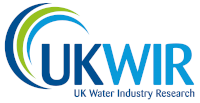Sustainable water treatment: building resilience for the UK's future
08/09/2025
The provision of safe, clean drinking water is a cornerstone of public health and economic prosperity in the UK. However, the sector is facing escalating challenges, driven by factors such as climate change, population growth, and the increasing complexity of raw water sources. These pressures highlight an urgent need for robust, sustainable, and resilient water treatment solutions.
Our recent project, "Sustainable and resilient alternatives to traditional water treatment," signals a critical shift in approach.
A new wave of water treatment
The core challenge is that existing water treatment processes are proving increasingly costly, energy-intensive, and potentially unsustainable in the long term. Ever-tightening water quality standards and deteriorating raw water quality are challenging existing water treatment works. Traditional processes also occupy a significant land footprint and are energy - and chemical - intensive. Coagulants, often used in traditional treatment, can be expensive, subject to price volatility, and vulnerable to supply chain disruption.
The project rigorously evaluated a range of cutting-edge technologies, identifying several with significant promise:
- Self-cleaning strainers/filters: These can significantly reduce fluid waste discharges.
- Ballasted clarification: This allows for lower power consumption and a smaller land footprint than comparative conventional technologies.
- Ceramic MF/UF membrane filtration: This has the potential to reduce or even eliminate the use of chemicals and replace multiple steps in conventional plants, reducing overall footprint and embodied carbon.
- Polymeric ultrafiltration
- Hollow fibre nanofiltration: Similar to ceramic membranes, this can reduce or eliminate chemical use and replace multiple conventional treatment steps, leading to reduced footprint and embodied carbon.
- Biochar: a cost-effective and environmentally friendly adsorbent as it can be produced from waste materials.
A key outcome of this project, delivered by the dedicated team including Dr Payam Malek, Martin Pryor, and Michalina Smielecka (WSP UK), alongside UKWIR Project Manager Nina Jones, is a user-friendly digital tool for treatment technology comparison and cost-carbon modelling. This powerful tool empowers UK water companies to make informed decisions that will directly lead to reduced chemical usage, lower carbon emissions, and enhanced supply chain security.
The research also highlighted that while the initial power consumption of some advanced technologies like ceramic filters and nanofiltration might suggest higher costs and carbon emissions per ML of water produced, they offer significantly lower land footprints. Additionally, the embodied and operating carbon emissions associated with transport of materials, particularly concrete and steel, should not be underestimated, and ongoing carbon emissions from chemical coagulation can be substantial over a 20-year lifespan.
Looking ahead
Beyond promising alternatives, successful implementation hinges on key strategic considerations. A multi-barrier approach, where combinations of technologies are applied in series, is recommended for more accurate comparison and to ensure treated water quality. The decision-making tool provides estimates based on a model for different-sized works, serving as an initial high-level guide, and further technologies could be added for future evaluation.
Cost-effectiveness is paramount, with source control often representing the most economical long-term solution. It is vital to adapt regulatory frameworks to actively support these innovative technologies, alongside robust data collection and monitoring. Crucially, successful implementation will also require proactive engagement with local communities and stakeholders.
The journey towards a more sustainable and resilient water future is a collective one. We invite all UKWIR members to explore these findings further through the dedicated project resources on our website, including the new AI search feature. Your active engagement, insights, and feedback are crucial as we collaboratively advance these solutions to build a truly sustainable and resilient water future for the UK.
